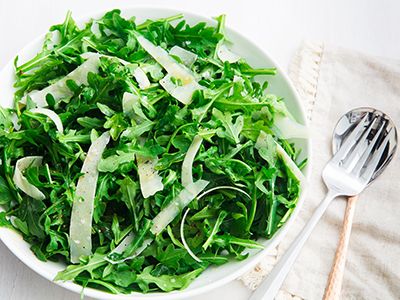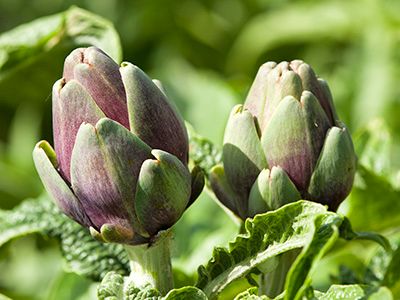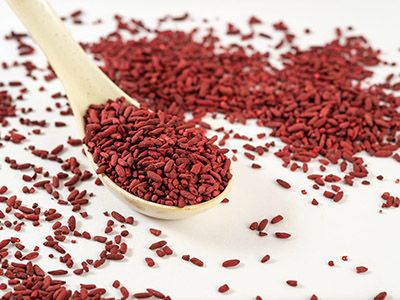Dr. Su's Blog
Botanical and Plant-Based Tools for Shifting Imbalanced Lipid Levels
In the last blog I discussed the lab values that help determine cardiovascular risk. Now let’s discuss ways to shift imbalanced lipid levels.

For most people, herbal medicine works beautifully restoring lipids to healthy levels because herbs function so broadly. Unlike medications designed to lower cholesterol by blocking its production, which can also negatively impact other body systems (such as statins’ possible effect on the heart muscle), herbs restore normal physiological function across many systems. This means an herb known for normalizing cholesterol may also support thyroid function and encourage weight loss, which in turn will benefit heart health.
Although it is beyond the scope of this blog, of course the first place to start is with diet. Donnie and I both wholeheartedly promote the Mediterranean Diet (MD) as the optimal way to eat. Is this because we are both of Italian decent or because of the literally thousands of studies highlighting its strengths? Probably both! Though the MD can be interpreted many ways, it has some consistent characteristics: lots of fresh, polyphenol-rich olive oil, plant proteins such as legumes, whole grains, and an emphasis on vegetables, including wild, bitter, spring greens. Traditionally if meats were served, they were not the “star” of the plate as they are here, and were just used as dense flavoring and protein enhancement. Near the coast, seafood was more common. Also, because of the many feast days throughout the year, depending on how devout one was, there were many days when food intake was limited and people fasted, which resets the body towards healthy blood-sugar and lipid control. With a vegetable-rich diet, you literally bathe your cells in nutrients that promote healthy function.

There are some great herbs for supporting appropriate lipid levels. If hormones, blood sugar, and thyroid levels are balanced, I use the botanicals and plant-based tools below to bring cholesterol down a notch or two:
One of the first herbs I think of is Guggul (Commiphora mukul), which grows in India. It lowers LDL, VLDL, and triglycerides, while increasing our “good” cholesterol, HDL. It improves the liver’s ability to metabolize and excrete cholesterol. It also normalizes thyroid function, which lowers cholesterol and also supports weight loss. Guggul prevents atherosclerosis (hardening of the arteries) and scrubs away existing plaque build-up, all while having an anti-inflammatory effect. In one study (1), 205 patients took 500mg/day for 12 weeks. The average lowering of cholesterol was 23.6% and triglycerides was 22.6%. In a separate study the averages were more modest at around 11% but the HDL increased over 60%!
Back in the Mediterranean, the culinary artichoke also increases HDL, while lowering total cholesterol and LDL. Like Guggul, it improves liver function and reduces elevated liver enzymes due to fatty infiltration. It also upregulates nitric oxide in the endothelium (vessel lining), which is anti-clot, anti-atherosclerotic, and helps gently dilate blood vessels for optimal blood flow. It even reduces post-meal glucose and insulin. You can see how having a plate of roasted artichokes with a glass of wine overlooking the Mediterranean Sea is good for the heart!

Another interesting substance in the lowering of cholesterol is plant sterols. These have a very similar structure to cholesterol and are thought to inhibit cholesterol absorption. Found in whole grains, nuts, legumes, and veggies, the typical dietary intake is between 150-400mg per day. Interestingly they have an additive effect with statin medications, whereby supplementing with 2 grams per day enhanced the cholesterol-lowering effect better than just increasing the dose of statins.
Beta-glucans are a soluble fiber from oatmeal, oat bran, barley, and yeast. Beta-glucans work by increasing conversion of cholesterol to bile acids, which are then eliminated through the gut. Even though they are found in these high-carbohydrate foods, they moderate the insulin response, which in turn decreases cholesterol synthesis. Beta-glucans also improve the gut microbiome, which decreases cholesterol production and supports healthy immune response and mood.
Lastly, I always consider adding red yeast rice to my lipid-management protocols. This is a rice that has been fermented with Monascus purpureus. The resulting monocolins inhibit the synthesis of cholesterol in the same way that statin drugs do—by blocking the HMG-CoA Reductase enzyme, but with less potential for side effects. Red yeast rice also contains plant sterols, isoflavones, zinc, selenium, and monounsaturated fats. A Chinese study followed 5000 patients over 5 years and found that red yeast rice reduced cardiovascular-related deaths by 37% (2). There have been contamination issues with red yeast rice but verifiably-clean red yeast rice is a good part of a cholesterol-lowering program.
Elevated cholesterol levels can have many different etiologies, such as excessive production by the liver, inflammation, hyperglycemia and hyperinsulinemia, and hormonal dysregulation. The ideas above are very general but can be quite effective. A comprehensive approach with the support of a qualified healthcare practitioner will yield the most optimal results.
1. J Assoc Physicians India. 1989 May:37(5):323-8. Clinical trials with gugulipid. A New hypolipidaemic agent. Nityanand S. Srivastava JS. Asthana OP.
2. https://journals.sagepub.com/doi/full/10.1177/2156587211429703

Meet Dr. Su!
Dr. Susan Saccomanno, ND, LAc is a contributing writer to the Mederi Blog and a practitioner at the Mederi Center Clinic in Ashland, Oregon. She has over a decade of experience as a family physician with a specialty in holistic cancer care and chronic illness. Dr. Su has been practicing at the Mederi Center since 2014, where she blends the best of naturopathic and Chinese traditions.
Dr. Su became a doctor out of her passion for helping people achieve vibrant health. She received her Naturopathic Doctorate and Master of Oriental Medicine degrees from National College of Natural Medicine, and extended her studies in integrative cancer care in the Eclectic Triphasic Medical System (ETMS), founded and taught by Donnie Yance.


